Human Chorionic Gonadotropin 5000 IU (HCG)
$45.00 – $120.00
HCG, or Human Chorionic Gonadotropin, is a remarkable glycoprotein hormone primarily produced during pregnancy. Its pivotal role is to support the corpus luteum, ensuring a stable environment for early pregnancy. Beyond pregnancy, HCG finds applications in fertility treatments, including triggering ovulation in women. Controversially, it’s associated with weight loss programs.
Description
Human Chorionic Gonadotropin (HCG) 5000 IU: Unveiling the Science, Applications, Mechanism of Action, Potential Side Effects, and Essential Precautions
Human Chorionic Gonadotropin (HCG) 5000 IU is a hormone that holds a unique place in both reproductive health and medical therapy. This comprehensive guide explores the fascinating world of HCG, including its mechanism of action, clinical and non-clinical applications, potential side effects, and essential precautions.
Mechanism of Action
HCG, produced during pregnancy, exerts its effects through a multifaceted mechanism of action. Understanding how it works is pivotal to grasping its applications and potential side effects.
- Corpus Luteum Maintenance: During the early stages of pregnancy, HCG plays a critical role in preserving The corpus luteum, a transient hormonal gland within the ovary. The corpus luteum produces progesterone, a hormone vital for maintaining the uterine lining and supporting pregnancy. HCG mimics the action of luteinizing hormone by binding to the LH receptor on the corpus luteum, ensuring its continued production of progesterone.
- Stimulation of Sex Hormones: HCG triggers the synthesis of Hormones related to reproduction, encompassing estrogen and progesterone, which create a nurturing environment for the developing embryo. This hormonal balance ensures the uterine lining remains receptive for implantation and supports early fetal development.
- Ovulation Trigger: In assisted reproductive technologies like in vitro fertilization (IVF), HCG is administered to induce ovulation. It precisely times the release of mature eggs from the ovaries, increasing the likelihood of successful fertilization.
- Testosterone Production: HCG also has applications in men with low testosterone levels due to hypogonadism. It induces the Leydig cells within the testes to increase their testosterone production, which can address hormonal imbalances and associated symptoms.
Clinical Applications
HCG’s versatility extends beyond pregnancy support:
1. Pregnancy Testing: HCG serves as the cornerstone of pregnancy tests. Detectable levels of HCG in a woman’s urine or blood confirm pregnancy.
2. Fertility Treatments: In fertility, HCG is invaluable. It triggers ovulation, a pivotal step in IVF and intrauterine insemination (IUI) processes.
3. Cryptorchidism: HCG can treat cryptorchidism, where one or both testes do not descend into the scrotum. HCG stimulates testicular descent before surgical intervention.
4. Hypogonadism in Men: For men with hypogonadism (inadequate testosterone production), HCG can help boost testosterone levels, potentially alleviating associated symptoms like low energy and reduced muscle mass.
5. Weight Management: While controversial, some weight loss programs incorporate HCG injections and a low-calorie diet. These programs aim to utilize HCG’s effects on metabolism to promote weight loss. However, the efficacy and safety of such programs are subjects of debate.
Potential Side Effects of Human Chorionic Gonadotropin 5000 IU
While HCG is generally well-tolerated, it can cause side effects, the nature and intensity of which can vary among individuals. Common side effects include:
1. Injection Site Reactions: When administered as an injection, some individuals may experience mild pain, redness, or swelling at the injection site. These effects are usually transient.
2. Ovarian Hyperstimulation Syndrome (OHSS): OHSS is a potential risk when using HCG in fertility treatments, especially in conjunction with other hormones. Symptoms include abdominal discomfort, bloating, and fluid retention. Severe cases may necessitate hospitalization.
3. Multiple Pregnancies: HCG use in fertility treatments may increase the likelihood of having twins or higher-order multiples. Multiple pregnancies carry additional medical risks and considerations.
4. Breast Tenderness: Some women may experience tenderness or enlargement due to HCG treatment.
5. Mood Swings: Hormonal fluctuations triggered by HCG can lead to mood swings or emotional changes in some individuals.
6. Blood Clot Risk: Although rare, There have been observations of a minor elevation in the risk of blood clotting associated with HCG, especially in individuals with underlying clotting disorders.
Essential Precautions
Before embarking on HCG therapy, several precautions should be taken into account:
1. Medical Supervision: It is essential that HCG is administered exclusively under the care of a qualified healthcare professional capable of monitoring its impact and making any required modifications to the treatment regimen.
2. Pregnancy: HCG is contraindicated during pregnancy, as it can interfere with the natural hormonal balance necessary for fetal development.
3. OHSS Awareness: Women undergoing fertility treatments involving HCG should be vigilant for signs and symptoms of OHSS, promptly reporting any unusual discomfort to their healthcare provider.
4. Allergic Reactions: Individuals with a history of allergies to HCG or related compounds should inform their healthcare provider before beginning HCG therapy.
5. Blood Clot Risk Assessment: Individuals with a history of blood clots or clotting disorders should discuss HCG treatment’s potential risks and benefits with their healthcare provider.
6. Medication Interactions: Patients should provide a comprehensive list of medications and supplements they take to their healthcare provider, as HCG can interact with certain drugs.
In conclusion, Human Chorionic Gonadotropin (HCG) 5000 IU has diverse applications in reproductive health and medical therapy. Its mechanism of action, clinical uses, potential side effects, and precautions should be thoroughly understood and carefully considered when contemplating its use. Whether you embark on fertility treatments, address hormonal imbalances, or explore other medical applications, consulting a qualified healthcare provider is crucial to ensure safe and effective HCG therapy.
For assistance or inquiries, please click here.

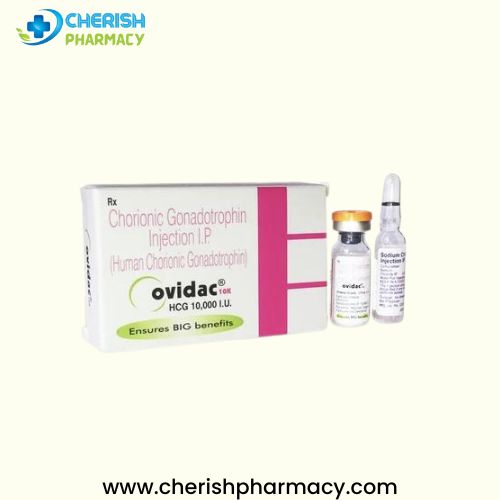
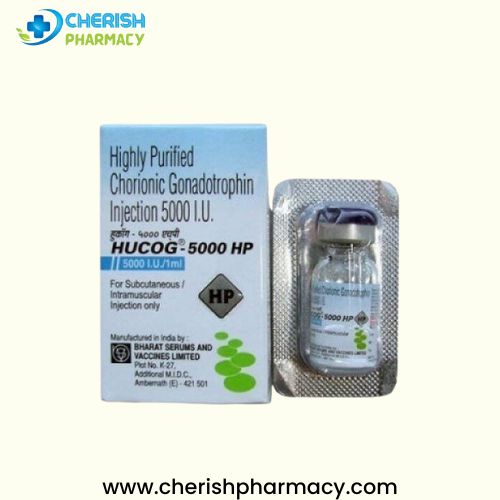

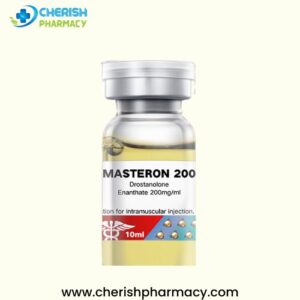


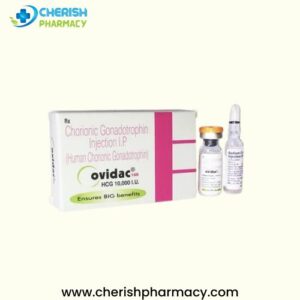
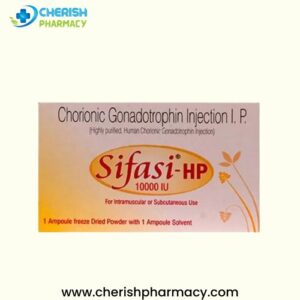
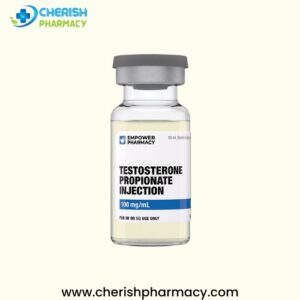
Reviews
There are no reviews yet.